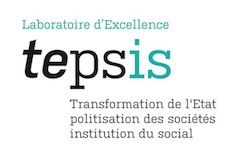" PRIMARIES " : A TOOL FOR PARTY UNIFICATION?
Résumé
An import from the United States and now widely held throughout Europe, primaries are said to resolve the double crisis of representation and " political demobilization. " (1). By providing registered party members, groups including members and sympathizers, or the voters at large with the opportunity to select a candidate for a presidential election directly in closed, semi-closed, or open primaries respectively, they supposedly help transcend the logics of the party " apparatus " and revitalize democracy. However, comparing the primaries of recent years helps put their effects into perspective. By making the selection of candidates over-rely on the logics of the media and offering an ever-renewed environment for the internal race for leadership, they have above all stripped activists of their prerogatives in the selection of political personnel and increased the personalization of politics (2). Looking beyond party rhetoric at the latest analyses, one clearly sees not only the multifariousness, but also the cyclical and strategic nature of primaries. In this respect, Europe Ecologie-Les Verts (Europe Ecology-The Greens – EELV) provides an ideal topic for an investigation of this mode of candidate selection, and this for at least two reasons. First, as a party concerned with showing its avant-garde nature, EELV claims to have long and systematically conducted primaries. Indeed, the environmentalists have experimented all types of primary elections, with the notable exceptions of the unaffordable open primary and the upcoming 2017 " left " primary. Therefore, detailed analysis of all green primaries allows one to understand what the can-electorate delimitation, and vote modalities. Next, having no chance of winning the presidential race, EELV does not seek to select a candidate among its members most likely to become president. The point here is to select a candidate capable of publicizing environmentalism with the general public and those voters who do not necessarily cast their vote for the green party despite a certain sensitivity to the environmental cause on the one hand, and on the other hand, to claim the party's monopoly of environmental representation in the political sphere. The EELV candidate must indeed be able to rally the " environmental people " and – at least during the presidential campaign – show the unity of political ecology, a unity all the more mythicized as it has never existed.
Domaines
Science politique| Origine | Fichiers produits par l'(les) auteur(s) |
|---|

